Harding Group Invests in the Future
BY Katelyn Storms
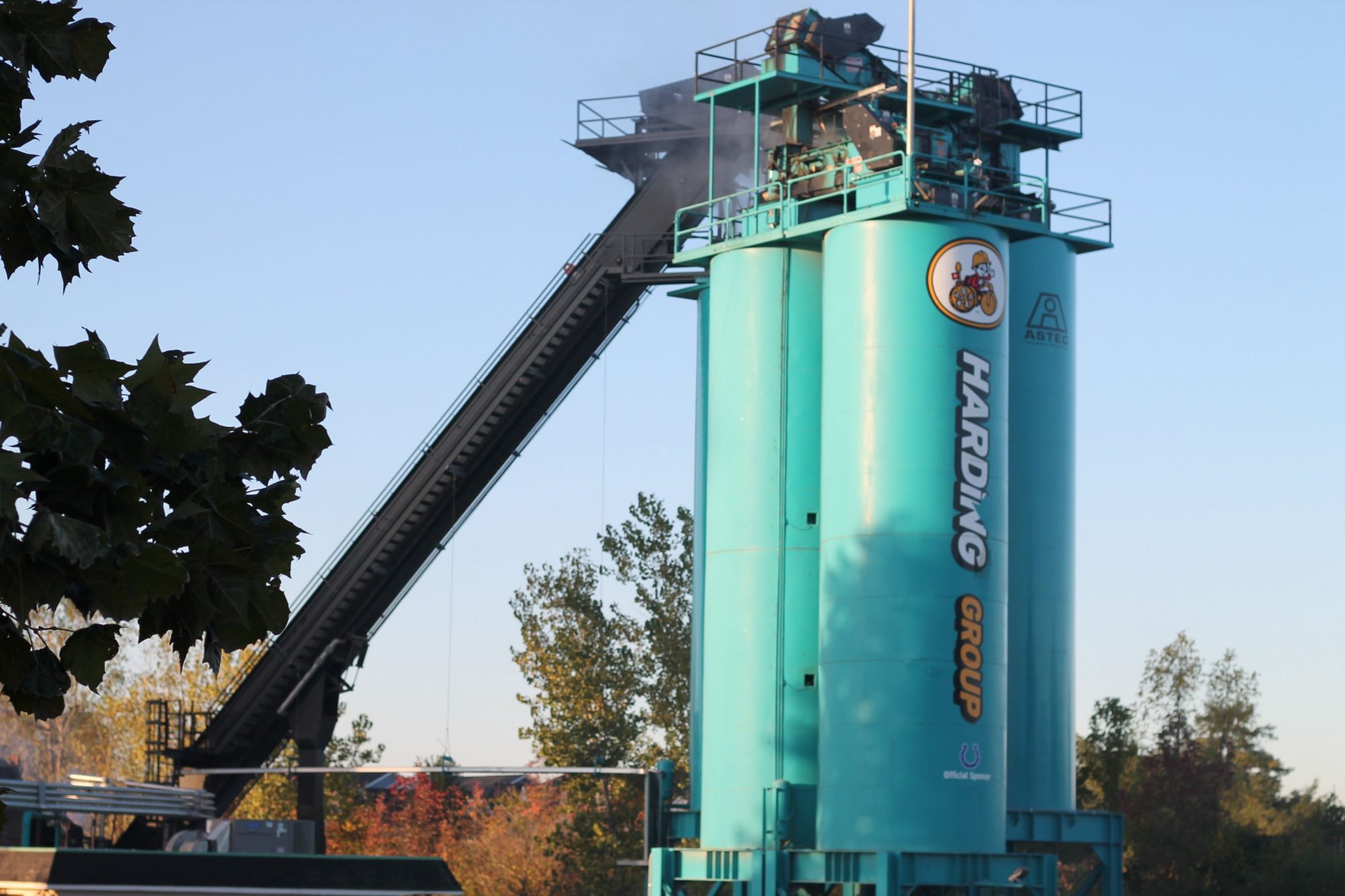
Evolution is the life blood of every organization. This concept is a core principal of Harding Group, an asphalt and concrete company based in Indianapolis, Indiana. Harding Group has been a part of the Indianapolis roadbuilding community since the 1960s. In 2018, the company went through an ownership transition where Shelby Howard IV became the owner of Harding Group.
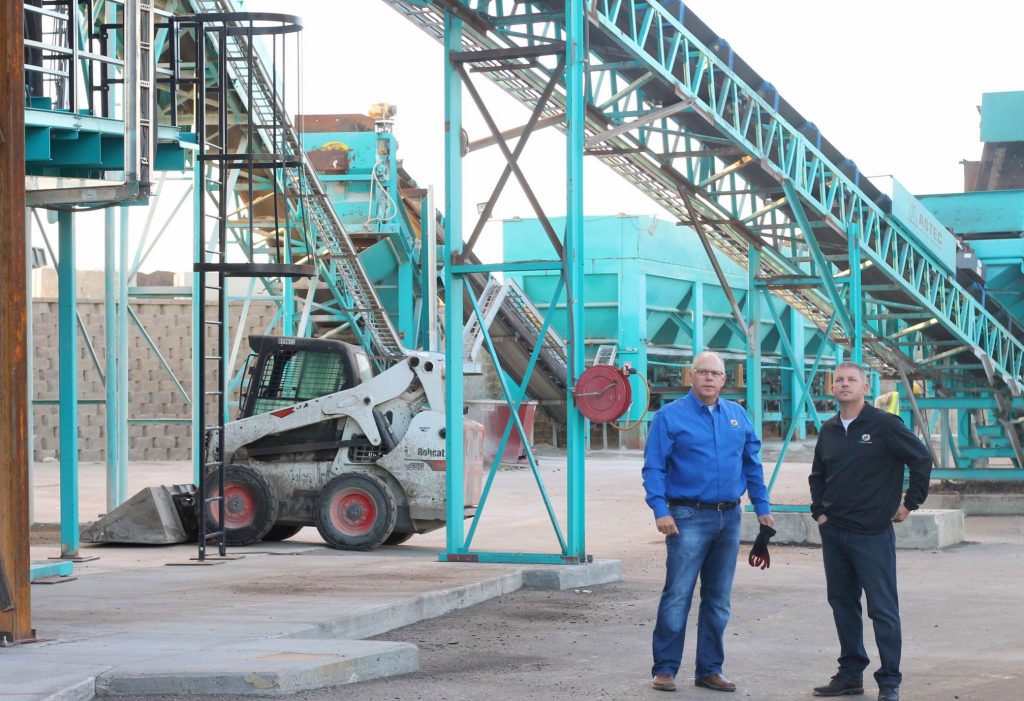
Shelby Howard IV (right) is pictured here with his Dad, Shelby Howard III (left), as they visit the Harding North Plant.
A Background in Business
Shelby IV grew up in his family commercial vehicle dealership business working his way up from the parts room. His father, Shelby Howard III, purchased his first dealership in 1992 and grew that dealership into a network of dealerships throughout Indiana and the contiguous states. In 2014, the dealerships were acquired by a national company. For the next five years, Shelby Howard IV stayed in the dealerships and became general manager for the Indianapolis and Gary locations which were two of the highest performing dealerships in the portfolio. Shelby IV wanted to transition back into a family business and made his investment in Harding Group shortly after.
Shelby Howard IV learned that the keys to success in the growth of his dealerships was having strong communication between employees as well as having industry leading technology. It is anecdotally said the construction industry is a laggard in adoption of technology. Harding Group historically fell in this category; however, Shelby IV has made significant investments in use of technology in a short time.
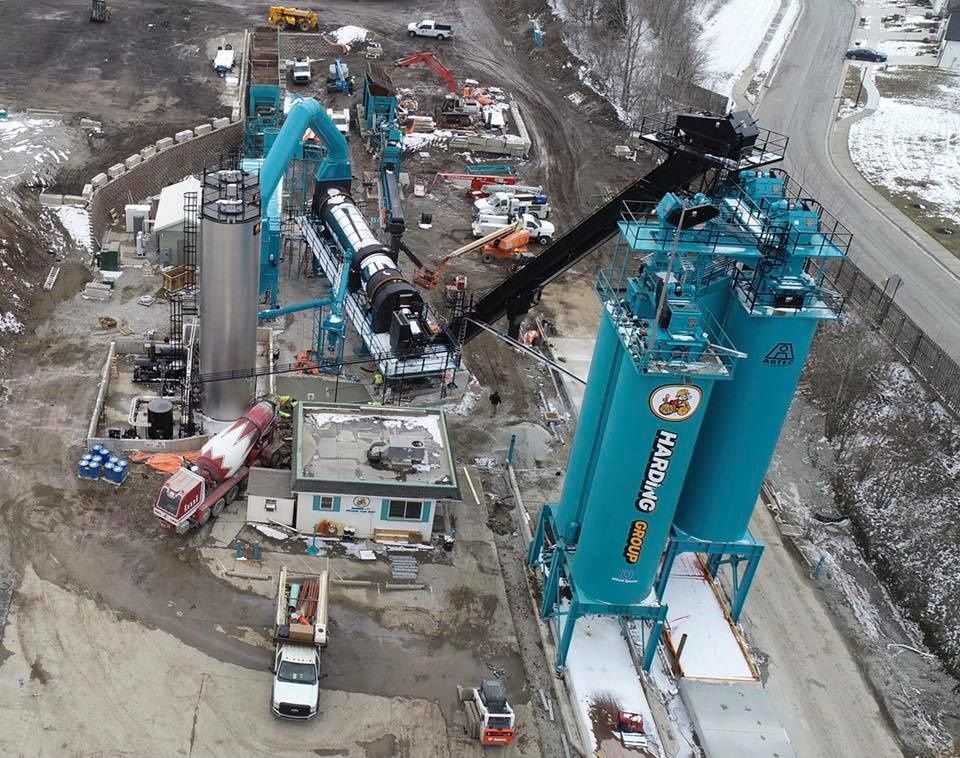
Bring Technology to the Forefront
“In today’s environment, you have to always be looking for ways to improve your business efficiencies to stay best in class,” Shelby Howard IV said. “Technology is one tool that is always advancing. We try to stay in front of our competitors by fully embracing the tools that are at our fingertips. This allows our employees to strive and at the same time, it makes it easier for our customers to do business with us.”
Operating multiple hot mix asphalt plants, Harding Group identified multiple opportunities to upgrade its communication with its own paving crews and its outside customers. Beginning in 2019, Harding Group began electronically sending invoices and tickets daily for all its transactions. The primary reason for this was to eliminate the many hands a paper ticket must go through prior to a customer entering an invoice and the corresponding tickets in its accounting system.
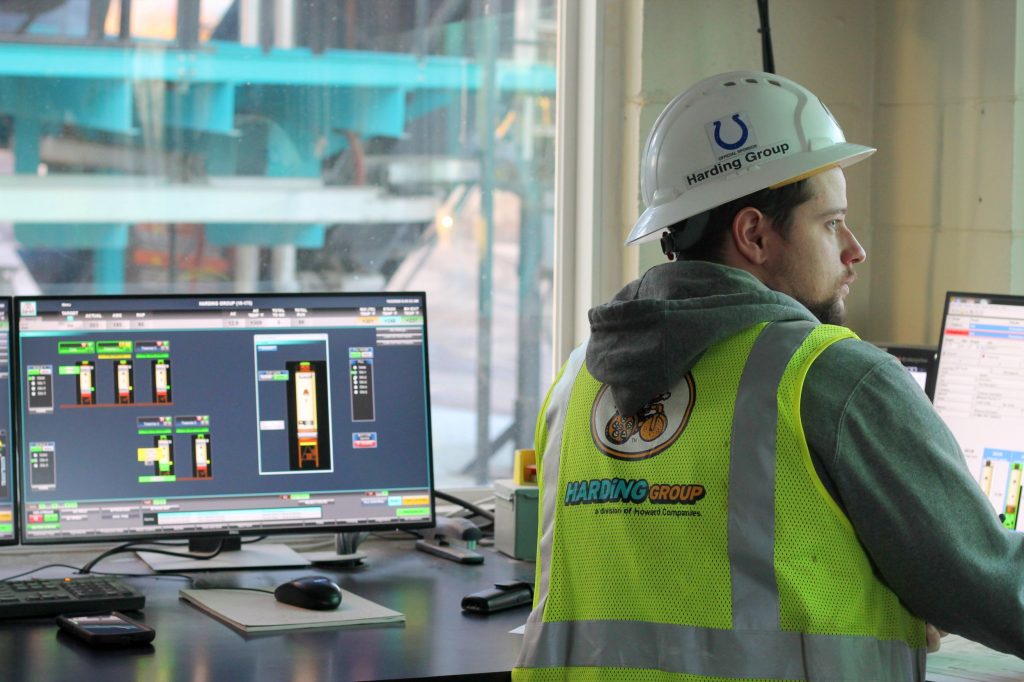
William Jacobs, a Plant Operator, is shown here in the control room at the Harding Group North Plant.
Asphalt professionals know that prior to 2020, paper tickets were often printed at asphalt plants and handed to the hauler, then to the foreman on the job site, then to an office employee and so on. Harding Group was ready to streamline this process.
“Our E-ticketing process is an internally developed process as we use both Libra and Astec loadout software at the plants to generate the tickets,” Shelby Howard IV said. “We felt it was important to have one unified delivery system of invoices and tickets when using multiple load out software partners.”
Command Alkon and Libra Systems, Inc. Team Up to Serve Heavy Construction Materials Suppliers
In changing the way Harding Group communicates its invoices and tickets to its customers, it eliminates the need for the paper ticket. This is one less thing the paving foreman needs to worry about and allows him to focus on paving and not collecting paperwork to send to the office.
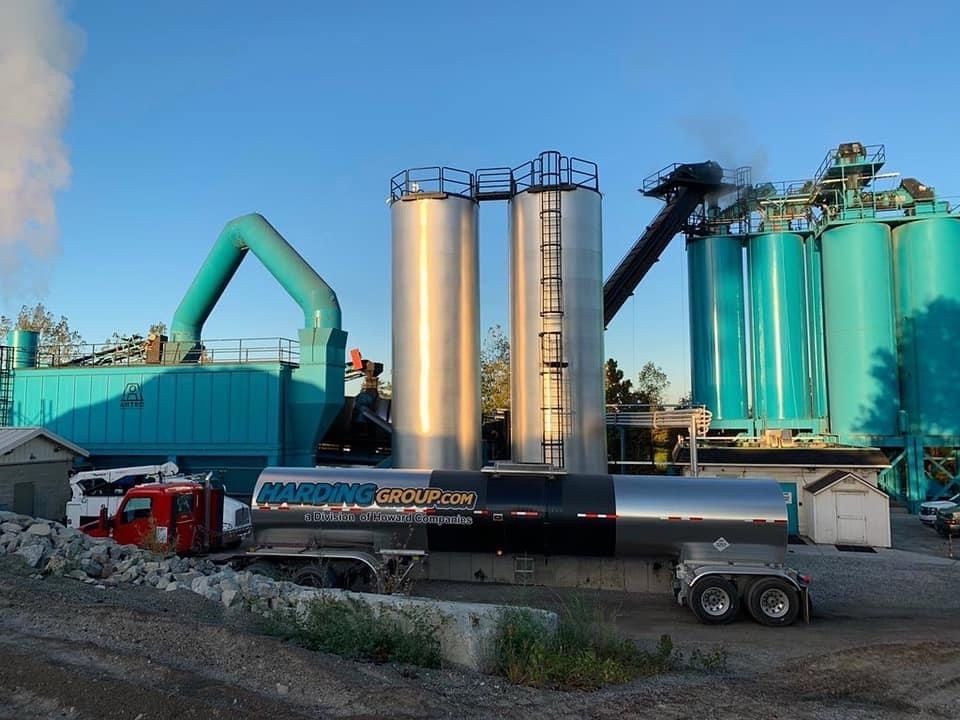
“For our triaxle trucks, we have invested in GeoTab, a GPS integration technology with the triaxles. GeoTab allows us to not only monitor the location of the triaxles but certain key safety metrics, which we incorporate in our overall Key Performance Indicator model. Our crew foremen all have access to see real-time the GPS of the triaxles, whether milling or paving that day, in an effort to gauge the correct speed for paving to ensure there is no waiting in between trucks and we can pave a continuous mat.
Braen Stone Leverages Libra Systems Integrated GPS and Plant Management Tech
“Our operations team is also able to view the truck flow from the office, and communicate with the crew foreman whether or not we have the right number of trucks on the job for the day. This flexibility has allowed for significant operations improvements for the company by knowing and understanding where our assets are at all times and ensuring there is constant communication between the plant, field and office on a daily basis.”
The company found that sending this information daily allows its customers to provide feedback immediately. Harding Group discovered daily invoicing to be a key performance indicator metric for the accounting team in providing management with timely and accurate financial data as part of daily dashboard reporting of the asphalt plants.
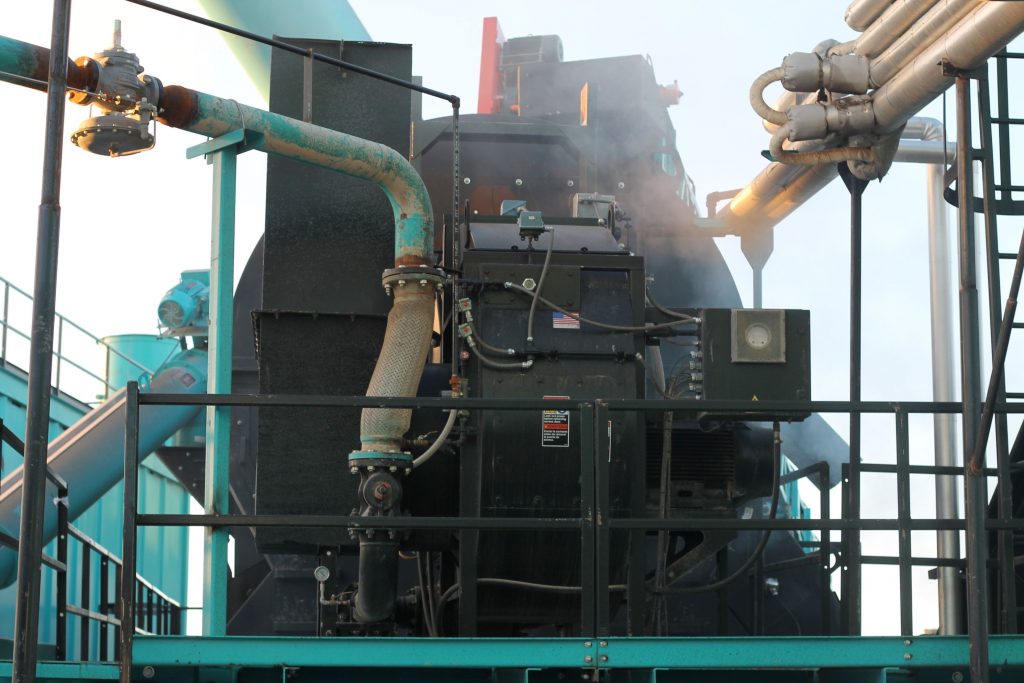
Both plants with upgrades complete fired up within an hour of each other April 1, 2020.
“This further allows the plant to understand real time what the daily production demand is to ensure a proper continuous flow of production. We are able to create digital copies of the tickets at the time of loadout. We’ve further internally developed the reporting ability to compile data and through proprietary software are able to send an invoice matched with the corresponding tickets sorted by job to each customer for the day.”
In 2020, a shift in Indiana came by requiring paperless ticketing on certain projects. With the onset of COVID-19, Harding Group was prepared to handle these requests without any change in its standard operating procedure. During the COVID-19 peak shelter in place orders, the accounting team at Harding Group was able to work remotely while still delivering daily reporting to its customers on asphalt purchases.
Having improved the communication from the asphalt plant load out to invoicing portion of a transaction, Harding Group then shifted its focus to the front end of asphalt production: the ordering process. Servicing multiple asphalt crews from various scheduling managers presented a challenge to ensure daily production was scheduled in the most efficient manner. During the winter of 2019-2020, Harding Group took to the drawing board and reinvented its daily ordering process.
With the help from a developer and the leadership of Shelby Howard IV and Chief Financial Officer Sean Rizer, the company developed an online ordering tool which allows customers to place orders a day in advance or a week in advance. The orders are gathered and reviewed by the plant manager which allows him/her to modify the order if necessary. This tool allows for flexibility in scheduling so if a rain-day hits the plant operator can send a message to all customers such as, “due to weather conditions all orders are being pushed back a day.” Harding Group put security measures around the platform to ensure only authorized users are placing orders. Utilizing this tool improves the communication from the paving schedulers to the plant manager and operators.
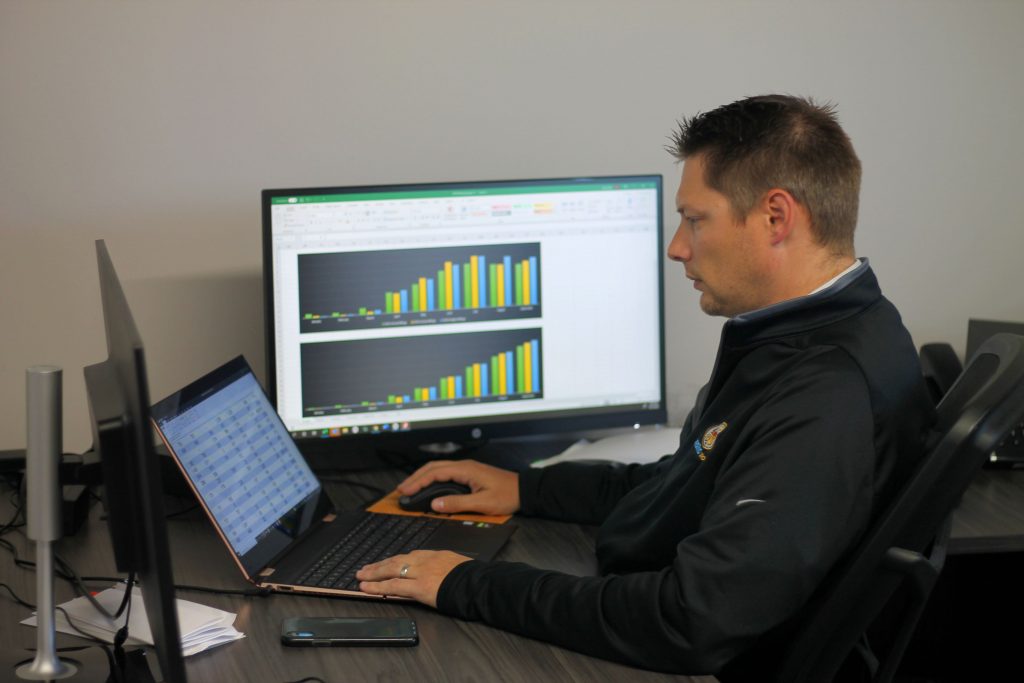
Sean Rizer, CFO of Harding Group, works on the development of their new app.
With this new system, orders can be placed from smart phones, tablets, or computers in real time. Through implementation of this tool, the company no longer worries about a missed phone call or a missed opportunity to fill an order. This has improved the plant’s ability to increase sales by not missing orders and has increased customer satisfaction and improved communication and product availability.
Bring in a New Plant
In summer of 2019, Shelby Howard IV realized Harding Group needed to increase its investment in its asphalt plants.
“The key to making a consistent product is having a consistent manufacturing process.”
Harding Group partnered with Astec Inc., Chattanooga, to make significant upgrades to its existing asphalt plants. The two plants had very different set ups and this created additional challenges for the quality control team from a consistent manufacturing standpoint.
One plant was a batch plant retrofitted several years ago with a separate dryer and mixing drum system; the other was a prototype drum and dryer combination.
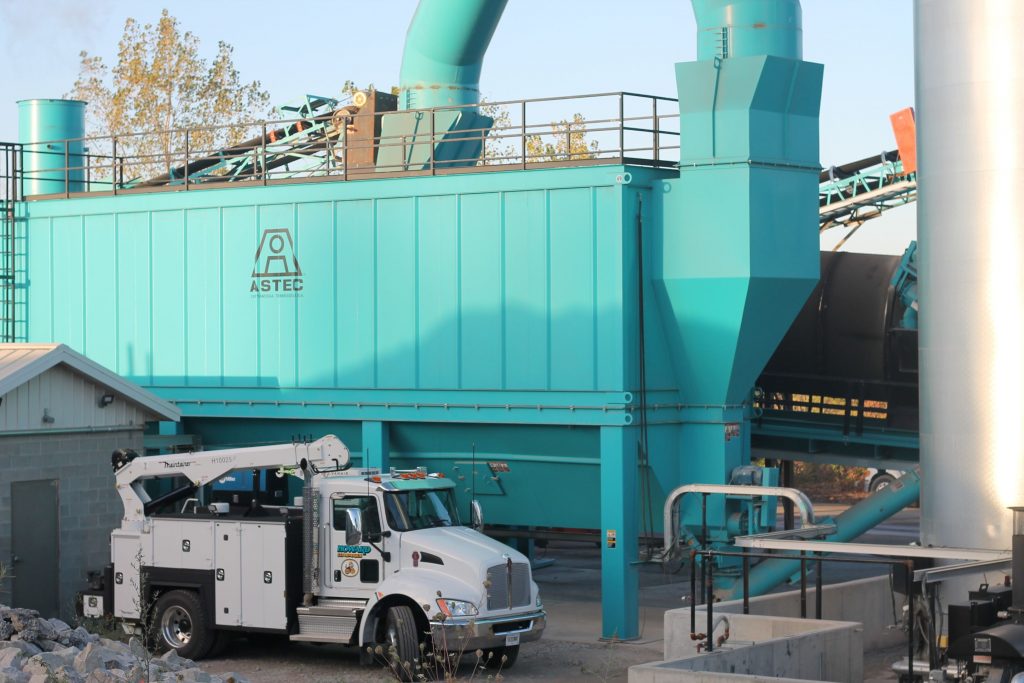
In 2019, Shelby Howard IV decided to make upgrades to two asphalt plants, enlisting the help of Astec Industries and his own knowledgeable team members. The retrofit batch plant received several upgrades including baghouse, drag slat conveyor, replacement silos and control system.
Through several discussions with Astec and the opportunity to tour its facilities in Chattanooga, Harding Group decided to upgrade both plants during the winter of 2019 with the Astec Unified Drum System. The retrofit batch plant also received several other upgrades including baghouse, drag slat conveyor, replacement silos and control system. The team at Harding Group worked countless hours during the winter on the installation with the assistance of Astec’s team.
“Some of the main initiatives of upgrading the two asphalt plants in one winter offseason were being leaders in doing our part of recycling (See this article, “Asphalt Producers Are Among Nation’s Top Recyclers”) and consistency of asphalt product from both plants. The largest challenges of getting the plants ready for the 2020 paving season were coordination of efforts and construction schedule. Indiana weather is famous for 30 plus degree swings in the same week. However, Harding Group was able to manage the construction schedule to ensure cranes and parts were on site and the necessary crew was on hand. Harding Group’s own employees did the vast majority of the construction with the assistance of Astec. There were many cold long days spent ensuring all parts were set with exact specification.”
Both plants fired up within an hour of each other April 1, 2020, a huge undertaking, which was well worth the investment.
“I knew heading into the 2020 paving season we were going to have to make significant upgrades to our asphalt plants to stay competitive in our market,” Shelby Howard IV said. “We know the asphalt plants are the heart of our operations and without a reliable asphalt plant, it makes it challenging to successfully bid work and retain asphalt plant customers as well. We’ve seen already this investment has been a ‘no brainer’ as it has allowed us to retain and grow our employee base and had no layoffs due to COVID-19, which is a testament to what we are trying to do in being a sustainable company in our local market.”
In the ever changing landscape we are all in, it is important to focus on constant improvement and looking for the next opportunity. By doing so, you can differentiate yourself from the competition and streamline processes. Harding Group is planning to accomplish this by looking ahead and planning for the future through implementation of new technology.
